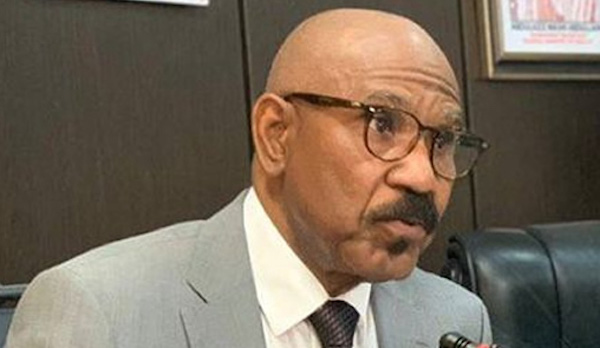Politics
Why Nigerian govt halted COVID-19 vaccination – Health minister

The Federal Government has explained why it halted the administration of the Oxford-AstraZeneca COVID-19 vaccine halfway in the states.
The federal government had last week asked the state government to suspend the vaccination once they have used half of the doses allocated to them.
The Minister of State for Health, Olorunnimbe Mamora, who made the clarification at the Presidential Task Force on COVID-19 briefing in Abuja, said the directive became necessary since the country was not sure when the second batch of the vaccine would arrive the country.
He said: “This is in order for those who have received their first jab to be able to complete their vaccination. We believe that in a situation where we still cannot specifically determine when the next batch of AstraZeneca vaccine will arrive, then I think wisdom on dictates that, it’s better for us to vaccinate people fully.
“And so that we can say that we have a pool of citizens that have been fully vaccinated since this vaccination comes in two doses.
READ ALSO: 818, 865 receive COVID-19 vaccine in Nigeria
“So that is what gave rise to that directive, rather than just going ahead with just a single dose when the full dose should be two doses of the same. So we felt that it was proper for us in the circumstance to ensure that those who have been vaccinated have been fully vaccinated.”
The Director-General of Nigeria Centre for Disease Control (NCDC), Dr. Chikwe Ihekweazu, said the center was investigating the reported blood clotting in some individuals that had taken the first jab of the AstraZeneca vaccine.
“There have been ongoing investigations that we have all be following on the suspected link between the AstraZeneca vaccines to the certain rare experience of blood clotting in individuals in Europe. Those investigations are still ongoing, right. Not all European countries are adopting vaccines for their populations.
“In Nigeria with every vaccine, we have a parallel system to measure and monitor any side effects.
“That is ongoing and is being managed by the National Agency for Food Drugs (NAFDAC) in collaboration with National Primary Health Care Development Agency (NPHCDA) and we will continue to monitor patients in Nigeria.”
Join the conversation
Support Ripples Nigeria, hold up solutions journalism
Balanced, fearless journalism driven by data comes at huge financial costs.
As a media platform, we hold leadership accountable and will not trade the right to press freedom and free speech for a piece of cake.
If you like what we do, and are ready to uphold solutions journalism, kindly donate to the Ripples Nigeria cause.
Your support would help to ensure that citizens and institutions continue to have free access to credible and reliable information for societal development.
























